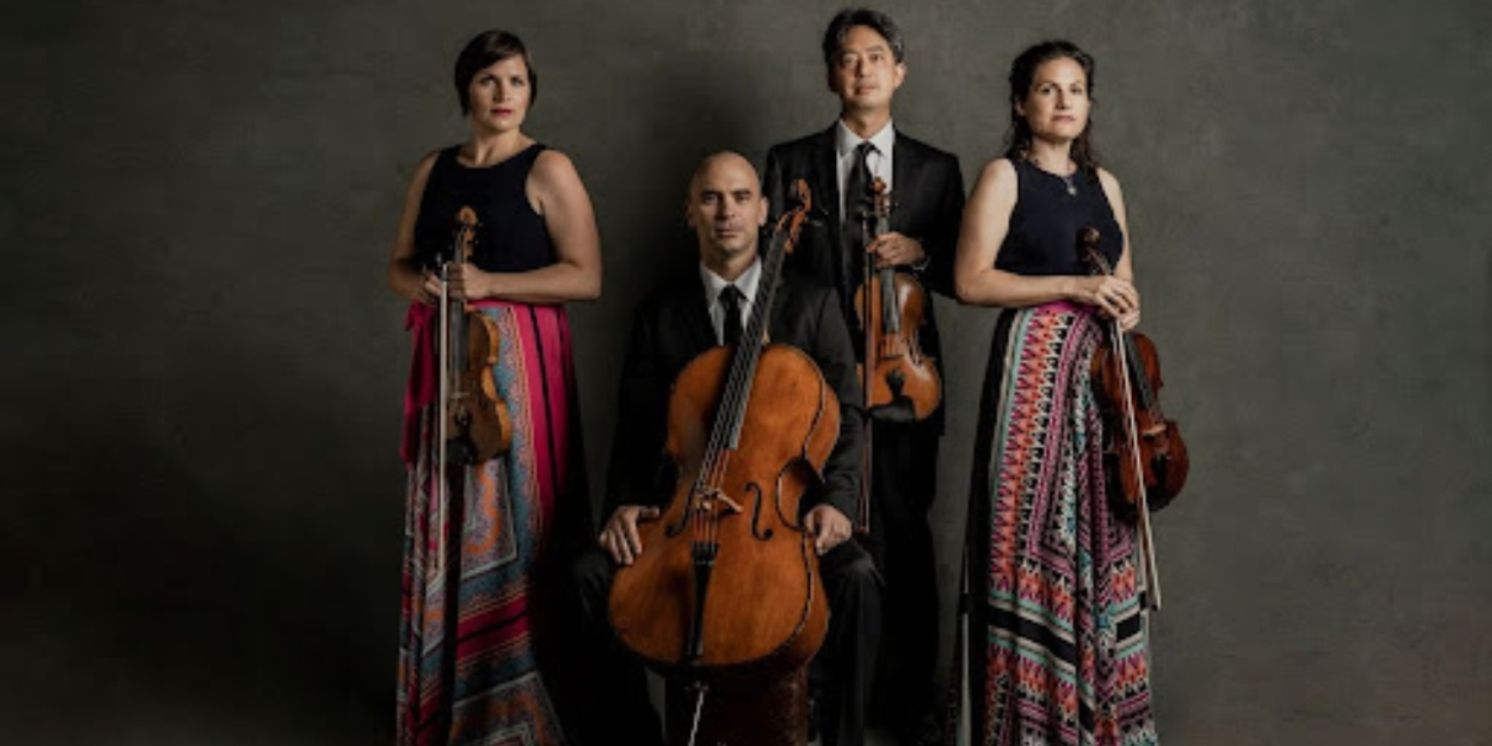The Jupiter Quartet to Return to Adelphi University in February
The performance will take place on February 28.

On Friday, February 28, 2025 at 7:30pm, the Jupiter String Quartet will be presented in concert by Adelphi University at the Adelphi University Performing Arts Center. The Jupiter Quartet last performed at Adelphi University in February 2022.
Based at the University of Illinois, Urbana-Champaign, and giving concerts all over the country, the Jupiter String Quartet is a particularly intimate group, consisting of violinists Nelson Lee and Meg Freivogel, violist Liz Freivogel (Meg’s older sister), and cellist Daniel McDonough (Meg’s husband, Liz’s brother-in-law). Brought together by ties both familial and musical, the Jupiter Quartet has been performing together since 2001. Exuding an energy that is at once friendly, knowledgeable, and adventurous, the Quartet celebrates every opportunity to bring their close-knit and lively style to audiences. Their connections to each other and the length of time they’ve shared the stage always shine through in their intuitive performances.
The Jupiter Quartet brings its well-honed musical chemistry to three works shaped by bold musicality and deeply meaningful thematic inspirations, written between the early 19th century and the present day, including Warmth from Other Suns by Carlos Simon (2020); String Quartet No. 3, Glitter, Doom, Shards, Memory by Shulamit Ran (2013); and String Quartet No. 13 in B-flat Major, Op. 130 with the Grosse Fuge by Ludwig van Beethoven (1825).
Carlos Simon, currently Composer-in-Residence at The Kennedy Center for the Performing Arts, in Washington, D.C., writes in his program note for Warmth from Other Suns, “Between 1916 and 1970, the mass exodus of African-Americans leaving the rural South, seeking homes in the urban West, Midwest, and Northeast became known as the Great Migration. Inspired by Isabel Wilkerson’s book The Warmth of Other Suns, I chose to bring these stories to life through the voice of a string quartet.”
Shulamit Ran’s third string quartet, Glitter, Shards, Doom, Memory is a tribute to the Jewish artist Felix Nussbaum and other victims of the Holocaust. The work’s name is tied to “Glitter and Doom,” the title of an exhibition of German art from 1919-1933, which was on display at the Metropolitan Museum of Art in 2006-07. Ran writes in her program note: “[T]his is my way of saying, ‘Do not forget,’ something that I believe can be done through music with special power and poignancy.”
Beethoven’s Quartet Op. 130 has the epic scope and startling originality that characterized many of his works from the final years of his life. Completely deaf at this point, he entered a period of sustained creativity, which often found voice through the intimate vehicle of the string quartet. The Op. 130 quartet contains six movements. The first five are of traditional length—a standard first movement followed by a series of dance movements. The fifth movement, Cavatina, is one of the most famously sublime works ever written, after which Beethoven shocked premiere audiences by launching directly into an enormous and strident grand fugue (Grosse Fugue). Audiences were so upset by this that Beethoven’s publisher convinced him to write an alternative dance-like finale, which became the official final movement. However, many quartets have since decided to return to the original ending in order to honor Beethoven’s intentions—and therefore the Jupiter Quartet will conclude the program with the Grosse Fugue (now filed under its own opus number, 133).
Of performing this program and returning to Adelphi University, the Jupiter Quartet says:
“It is always a joy to return to Adelphi University, which we have visited numerous times over the course of our career. We always relish the chance to work with student musicians while there, and look forward to playing again in Adelphi’s beautiful Performing Arts Center. The program we have prepared features multiple perspectives on the struggle to surmount powerful forces of darkness—an effort that is unfortunately still acutely relevant today.”
Videos

